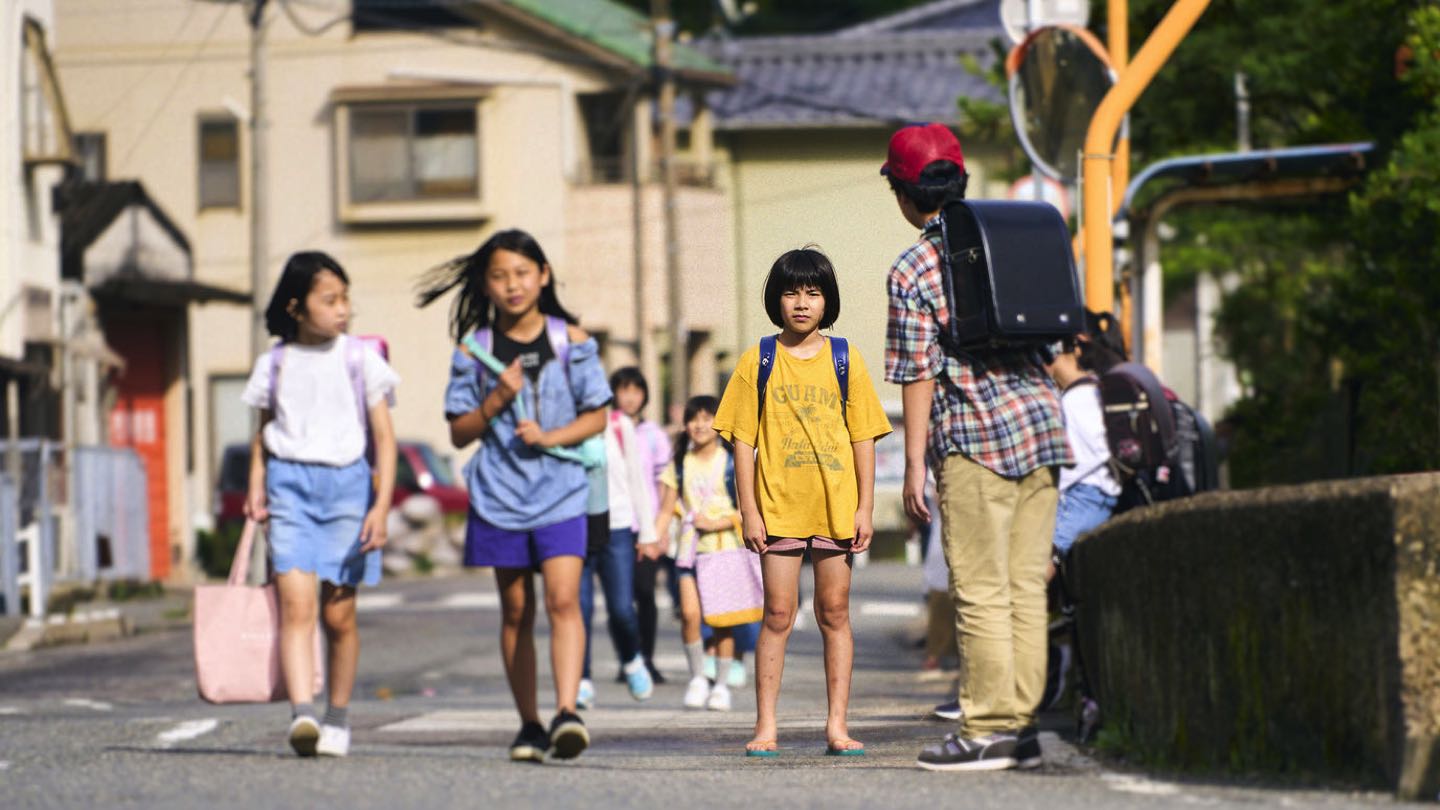
Amiko is an inspired, brilliant look at life through the eyes of a child.
The movie follows the titular character, the quirky and imaginative Amiko. Amiko goes about her life in a world that is half-imagination and half-reality, unaware of the everyday realities around her. Gradually, Amiko’s bizarre behavior in school and at home comes to wear on her parents and classmates. However, Amiko pays this little mind, even as her parents struggle with raising her and she finds herself in conflict with classmates. Although Amiko is bullied by some classmates, she seems mostly unphased by this. Her mother’s job as a teacher protects her to some extent, even as her older brother is increasingly troubled.
While the film maintains an upbeat tone, part of the implication seems to be that Amiko’s retreat into fantasy is to distract from the burdensome aspects of life around her, including emotional distress. Nevertheless, Amiko never breaks her cheerful facade, and her worldview through the movie remains that of a child–though the film is far from a coming-of-age narrative. In this, Amiko manages to still be a likable character and one who is, in many ways, highly relatable despite her eccentricity.

The movie is largely carried by Kana Osawa’s brilliant performance as Amiko. Osawa manages to hit every beat with her naturalistic acting, whether this is in terms of body language, facial expressions, or Amiko’s frequent songs to herself. Clearly, Osawa is a talent to keep an eye on in the future. Though the film’s other child actors—for example those who play Amiko’s classmates—also shine, they are not given as much space to show off their talents.
Amiko’s other casting choices are generally capable, particularly with regards to Amiko’s father, who is in the difficult position of having to care for his wayward child. Yet the other characters are still secondary, in that the film maintains a tight focus on Amiko’s subjective view of the world.

If certain plot elements in the movie are a bit hard to follow, this perhaps reflects how a child may themselves not always understand what is occurring around them. Indeed, it is the world of adults–far removed from Amiko–that leads to shifts in the plot, but this usually takes place as an unexpected intrusion into Amiko’s imaginative world.
Amiko avoids moments of high drama, instead keeping to a ground-level view of its subjects. Comparisons to Kore-eda’s distinctive brand of filmmaking are perhaps inevitable, particularly as the film features some child actors that originally made their debuts in Kore-eda films–even if Amiko indulges in a great deal more of the fantastical. However, such comparisons may distract from the accomplishment of first-time director Yusuke Morii in crafting a distinctive atmosphere to the film and imagining such a memorable main protagonist.
Ultimately, Amiko is a character drama, and though its primary focus is its protagonist and no other character. Amiko doesn’t engage in dense stylistics of setting or shooting style either; the film is not exactly a character study of its lead. What the movie perhaps accomplishes most, then, is realizing the world through the eyes of a child, and conjuring up that inner world for the audience.
• • •
Amiko (Japanese: 呼叫愛美子)—Japan. Dialog in Japanese. Directed by Yusuke Morii. First released July 8, 2022. Running time 1hr 45min. Starring Kana Osawa, Arata Iura, Machiko Ono.
This article is part of Cinema Escapist‘s dedicated coverage of the 2023 Bucheon International Fantastic Film Festival (BIFAN).
This article is also published in No Man Is An Island, an online publication focused on the connections between everyday life and politics. No Man Is An Island is brought to you by the team behind New Bloom Magazine.
